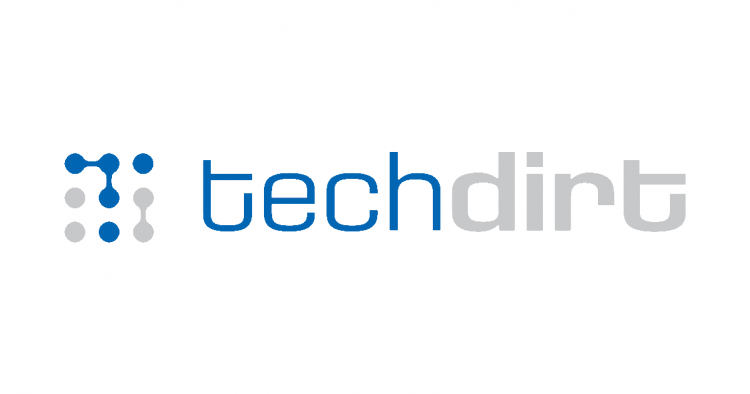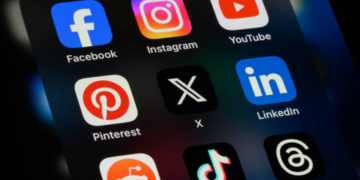from the that’s-not-how-any-of-this-works dept
At some point in the last five years, people in positions of media influence and power unilaterally decided that NYU marketing professor Scott Galloway was supposed to be everywhere, constantly, pontificating about absolutely everything, constantly. As a result, you now can’t go fifteen minutes without Galloway, who makes an estimated $5 million annually in speaking fees alone, wandering into punditry eyeline.
This week, Galloway spent his time pushing the hot DC claim du jour: that TikTok is a profound menace to the planet and should be banned. He made the point at the Vox Code conference, then hopped over to Bill Maher’s HBO show to make a similar pronouncement:
Like most of the folks who hyperventilate about TikTok (see FCC Commissioner Brendan Carr, or new billionaire Politico owner Mathias Döpfner), there’s really not a lot of substance here. The underlying claim is that China directly controls TikTok, and will inevitably use the very popular social media platform to spy on or influence American children in nefarious and very frightening ways.
Actual evidence of TikTok being uniquely dangerous (especially any indication China has used or could use TikTok to bedazzle U.S. children) has been sorely lacking, but that doesn’t stop folks from heading to the fainting couches. This face fanning has been especially popular among a certain set of xenophobic DC politicians, and companies that don’t want to have to directly compete with China.
With 4.8 billion internet users, TikTok is a smashing success. For now. It’s also owned by Chinese company Bytedance. The concern is that the Chinese government will work with Bytedance to exploit U.S. TikTok user data for nefarious purposes, or use the platform to feed U.S. kids propaganda. The other thought is because China bans U.S. services and apps, we should ban TikTok in kind.
The problem: the U.S. is a corrupt, xenophobic, superficial dumpster fire, so most of the “solutions” to this potential problem have been stupid and performative.
Trump’s solution, you’ll recall, was to use an unconstitutional executive order to force Bytedance to sell TikTok to his buddies over at Walmart and Oracle. You know, the same Oracle with a long history of privacy violations, super dodgy legal and lobbying practices, and a CEO who may or may not believes in this whole democracy thing.
That dumb deal fell apart, but Oracle still managed to secure itself a lucrative gig hosting U.S. TikTok user data, and a key role determining TikTok’s content moderation practices. So basically our ingenious solution to the “TikTok might harm the kids” was to tether it to an extremely shady U.S. company with extremely shaky ethics, low privacy standards, and its own profitable tethers to China.
Why Banning TikTok Doesn’t Fix What You Think It Does
Enter the “ban TikTok!” folks, who think they’ve got a simple solution to a complicated problem.
Here’s the thing: you could ban TikTok immediately, and China could hoover up location, browsing, and behavior data from an ocean of completely unaccountable and hugely shady data brokers and middlemen. And they can do that because U.S. privacy and security standards are hot garbage. And in some instances, they’re hot garbage because of the same people now complaining about TikTok.
Both Carr and Cruz have extensive histories of undermining regulatory oversight and privacy rules at absolutely every opportunity, yet both are lauded by Galloway in a blog post for being heroic leaders in the “ban TikTok” crusades. Galloway’s a top pundit, yet somehow can’t see that Carr and Cruz are engaged in a zero-calorie xenophobic theatrics, and couldn’t care less about actual consumer privacy.
For literally thirty straight years, at absolutely every single turn, we prioritized making money over transparency or consumer privacy. As a result, consumer privacy protections are garbage, regulators are toothless, governments exploit the attention economy to avoid having to get warrants, and any idiot with a nickel can easily build gigantic, hugely detailed profiles about your everyday life without your consent.
If you’re only just now waking up to this threat exclusively because China might abuse this massive, unaccountable mess we’ve created, you’re both arriving late to the party, and you’re not really understanding the full scope of the problem.
“Banning TikTok” does nothing meaningful if you’re genuinely interested in meaningful surveillance and privacy reform. There will always be another TikTok. There’s an ocean of companies engaging in the same or worse behavior as TikTok because we’ve sanctioned this kind of guardrail-optional hyper-collection and monetization of consumer behavioral data at every step of the way.
As Washington Post reporter Taylor Lorenz notes, fixating on “ban TikTok and the bad man will be defeated” is a simplistic distraction from our longstanding failures on consumer privacy and consumer protection:
Instead of focusing on broader privacy and consumer protection laws, which would affect US platforms like FB, people like Scott scapegoat and fear monger over TikTok. It’s an intentional distraction from real, comprehensive data/privacy reform and ppl should see it for what it is https://t.co/fb1UeuAoLq
— Taylor Lorenz (@TaylorLorenz) September 11, 2022
Many of the folks beating the “ban TikTok” drum may be well intentioned but just don’t really understand how broken the consumer privacy landscape is. They may not understand that this is a problem that’s exponentially more complicated than just what we do with a single app. Freaking out exclusively about a single app tells me you either don’t really understand the data-hoovering monster we’ve built, or don’t really care if anybody other than China exploits it (waves tiny American flag patriotically).
Many of the other folks calling for a TikTok ban aren’t operating in good faith. Facebook/Meta, for example, spends a lot of time spreading scary stories about TikTok in the press and DC because they want to crush a competitive threat they’ve been incapable of out-innovating. Similar, Politico’s owner is on the Netflix board and simply wants to curtail what he sees as a threat to market and advertising mindshare.
Then there’s just a ton of Silicon Valley folks who believe they inherently own and deserve the advertising market share TikTok occupies. And then of course there’s just a whole bunch of rank bigots who are mad because darker skinned human beings built a popular app, and try to hide this bigotry behind patriotic, pseudo national security concerns.
All of this converges to create a stupid, soupy mess that’s devoid of any actual fixes to any actual problems. Hyper surveillance and propaganda are very real problems that require a dizzying array of complicated fixes, including media and privacy policy reform, antitrust reform, tougher consumer protection standards, education reform, and a meaningful privacy law for the internet era.
We need to fund and staff the FTC, whose privacy enforcement division is pathetic by international standards. We need real technical solutions for real problems (the cellular network SS7 flaw, the sorry state of satellite security, the rampant lack of security in the Internet of things space).
We don’t get these things because real policy solutions are boring and don’t get the ad engagement clicks (you’ll never get on Bill Maher talking about antitrust reform). We don’t get these things because they might harm the revenues of U.S. companies. Even slightly more strict guard rails on data collection and monetization might inconvenience rich men like Mark Zuckerberg and Mathias Döpfner.
So what we get instead are rich influencers nabbing clicks by suggesting you can cure a significant portion of technology’s biggest issues by banning a simple app. Which is a shame, because most of the warnings privacy advocates have levied for decades are coming home to roost in an ugly post-Roe reality, and time is growing short when it comes to implementing actual, meaningful reform.
Filed Under: ban, china, consumer protection, fcc, ftc, national security, privacy, scott galloway, spying, surveillance
Companies: tiktok
Source by www.techdirt.com





























